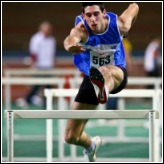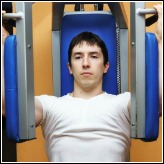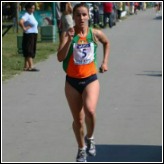4 Common Core Training Exercises
As a coach I have seen a vast array of common core training exercises. Many are safe and you might even say they are “fit for purpose”. However, some core exercises can be downright dangerous for any number of reasons – usually due to poor exercise execution. But even those that are recognized as “good” core exercises should be investigated properly before being implemented into your training program.
Here are the reasons why…
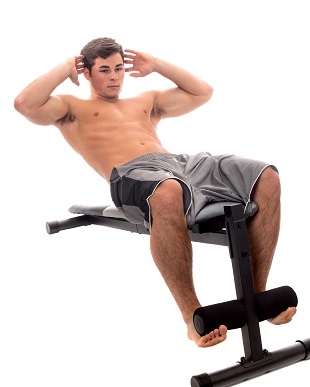
If you want to move efficiently, you will need to have control of your central longitudinal axis (that’s an imaginary line from the top of your head through your spine) . Your ability to maintain control of this axis is made more difficult by your trunk having the adapterbility to move in several different planes:
- Forwards and backwards (Sagittal Plane)
- Side to side (Coronal Plane)
- Rotational Plane (Transverse Plane)
Your central longitudinal axis will collapse under load if you first don’t strengthen the deep stabilizing muscles surrounding the spine, and then strengthen your core in a forward, backwards, rotational or sideways direction.
Below are
four of the most common core training exercises which target your core in these
specific ways. A video demonstrating how each exercise is done is included...
Sit Ups
Sometimes called a Crunch, this exercise and its variations are probably the most common core training exercises there are.
- Lie on your back on an exercise mat with your legs bent and your feet flat on the floor;
- Place your arms across your chest;
- Place your spine in a neutral position and equal pressure on both sides of your pelvis;
- Raise your upper body from the mat until it is about 45 degree (maintain neutral spine and pelvis position);
- Lower your upper body back to the mat until your shoulder blade touches the mat;
- Repeat;
- Added resistance in the form of a weighted disc, medicine ball or power-bag can be held in the arms across the chest.
Reverse Curls / Hyperextension
As a common core training exercise the reverse curl is designed to strengthen the erector spinae.
- You should lie face down on a table with your upper body hanging over the edge;
- Hold your hands behind your ears while a partner holds down your lower body (specialized equipment will allow you to do the exercise without having to rely on a partner);
- Starting from a lowered position, raise your upper body until it is in line with the table top;
- Lower your upper body back to a position where you are able to maintain a neutral spine (do not curl the spine into the table);
- Repeat.
- Added resistance in the form of a barbell or powerbag can be used.
Side Raise
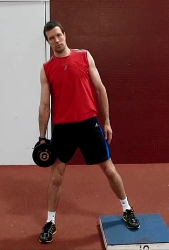
This exercise specifically targets the obliques and works the trunk in the coronal plane.
- Select an appropriate dumbbell or weight disc (5kgs plus);
- Position yourself where you are able to stand on two separate levels simultaneously – a raised platform no more than 6 inches will do;
- Standing side on, place one leg on the raised platform and the other on the floor (keeping both legs straight), you should now be tilted to one side;
- Hold the dumbbell in the hand on the opposite side of your raised leg – the tilted side;
- Make sure you are not over extended on the raised side and there is no buckling on the tilted side and that your shoulders are square with your hips;
- Slowly lower your upper body until the dumbbell slides pass your knee joint being careful not to buckle your spine;
- Now straighten your upper body up over the leg on the floor;
- Complete several repetitions on one side and then repeat on the other side.
Russian Twist
This exercise strengthens and enhances your core by improving your trunk stability while developing your rotational strength.
- Sit on an exercise mat with your legs bent and your feet flat on the floor, leaning back at a 45 degree angle;
- Hold your arms out in front of you (using a weighted disc or medicine ball will increase the resistance);
- Rotate your upper body by turning your shoulders to one side and then to the other side;
- Back and forth equal one repetition.
The above exercises are just a sample of some of the most common core training exercises which strengthen your trunk in all the planes of movements. At all times you should ensure your spine is in the most favourable position to accomplish the task and never overload the torso with too much load in the form of weights.
Sign Up For The Latest Track And Field News And Improve Your Athletic Performance!
From "4 Common Core Exercises" To "Faster, Stronger, Better – Your Shortcut To Improved Athletic Performance"
Learn more about Core Training.





